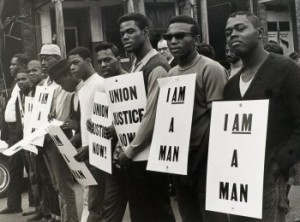I wrote an e-mail to gush to one of my favorite authors not too long ago, expressing my appreciation for his book. He wrote back that he is not sure whether he now agrees with himself on much that is in that book. Another friend said something to me once a while back, about how writing is a conversation, not a soliloquy. I routinely tell my beloved doctoral students that a dissertation is merely the first draft of a book, not the final draft of anything.
As I allow Kara to post this essay, I am struck by how scared I have been to send this out into the world. I hated watching these shows, and then I hated myself for caring so much about the people in them. As I went out and about in my usual manner, loudly telling people that I hated these shows, I found more people who love them, which also made me depressed. So, I had to make myself write through a haze of ick — the ick of the violent and violating images, the ick of knowing I was criticizing people I love, the ick of the sense that maybe my reading was shaped too much by my own pain . . . But, if scholars keep only to pretty topics, that seems quite off. And if scholars keep only to topics that will not offend people they love, that seems not quite right, either. And, if each one of us waits until we are unequivocally healed from the wounds of our lives, then, well . . . we are probably going to keep from writing a darned thing. Either that, or we will lie to ourselves, brazenly or subtly telling ourselves that our perspective is totally wholesome. I am not sure how to write a wholesome essay about torture.
Just as a teaser, I intend to keep trying to sort out themes of gender and power on American television. I just read a fabulous send-up of Downton Abbey in the New Yorker. Kara and I both confess (right, Kara?) to being a bit hooked on the show. [It’s true. – KNS] But I also, simultaneously, loathe that show, for multiple reasons, and am ticked-off at the popularity of such schlock. I wrote to a friend who likes Game of Thrones that I may try to write an argument for why Downton Abbey is arguably even worse, in the ways that the violence is beautifully sublimated. I need to sort that out for a while . . . What sticks in my head is a quote from Adin Steinsaltz, one that I have repeated again, and again. What we may need from popular media today is “useful trash.” I don’t think 24, Game of Thrones, or Downton Abbey is useful trash. I think each one is hurtful trash. If I had to recommend some useful trash on gender and power these days, I think my bet would be on Eastbound and Down, although I am only halfway into the first season. Wish me luck.
TV and Torture
Amy Laura Hall, Associate Professor of Christian Ethics, Duke University, rev.al.hall@gmail.com,
Click the links below to jump ahead to each numbered section.
- Torture-Culture?
- Television as Cathedral
- “Get Your Hands Dirty” on 24
- “Winter is Coming”
- Inconclusive Postscript from Homeland
What exactly, we must ask ourselves, is missing from our world that we should require spilled blood and incinerated flesh, and the fear such havoc and loss create, to feel alive?
Corey Robin, Fear: The History of a Political Idea (23).
Many scholars of American culture see our national preoccupation with female rescue as mere cover story, a pretext employed to justify the sanguinary pleasure our pioneers took in the slaughter of the continent’s natives and the decimation of the wilderness . . . But what if the reverse is also true? What if the unbounded appetite for conquest derives not only from our long relish for the kill but from our even longer sense of disgrace on the receiving end of assault? . . . What if the deepest psychological legacy of our original war on terror wasn’t the pleasure we now take in dominance but the original shame that domination seeks desperately to conceal?
Susan Faludi, The Terror Dream: Fear and Fantasy in Post-9/11 America (213).
Although much of this book details how easy it is for ordinary people to begin to engage in evil deeds, or to be passively indifferent to the suffering of others, the deeper message is a positive one. It is by understanding the how and why of such evils that we are all in a better position to uncover, oppose, defy, and triumph over them . . .
Philip Zimbardo (creator of the landmark Stanford Prison Experiment), The Lucifer Effect: Understanding How Good People Turn Evil, Forward (viii).
1. Torture-Culture?
Part of Abdullah Antepli’s anti-torture appeal in 2011, which appears in this volume, was for participants to risk the moral injury of viewing real footage of torture. In this, he and I shared an assumption. We assumed that most citizens had been avoiding such viewing. As conference organizer Matthew Elia explained in the months leading up to the event, the planning team thought we were asking people to make a shift – to “turn their eyes in this direction” and pay attention to what was being done in the name of American security. But, during the course of the conference, it became clear that there was a sizeable, and not idiosyncratic, segment of the population that wanted to view torture. American eyes had already been looking in the direction of interrogation since 9/11, turning to Fox each week as Jack Bauer did “whatever it takes” to keep us safe. Robin Kirk named this pattern specifically in her talk, here in essay form: Why did a significant part of the country wish for scenes of torture? Read more


